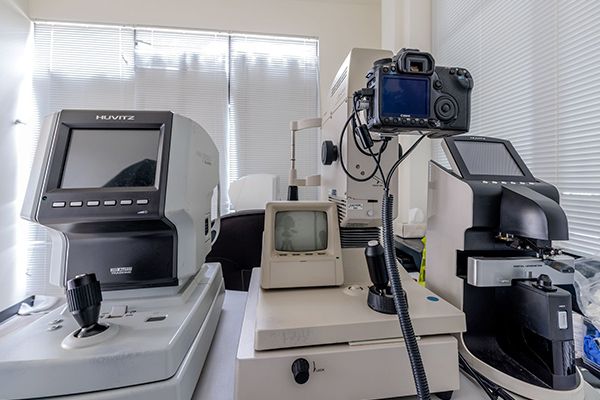Learning Tracking Issues
There Are Numerous Reasons Why Youngsters Struggle in School, but Many of Them Stem From Visual Tracking Issues. Writing and Reading Will Be Difficult for a Child Who Cannot Track the Information on the Page Correctly. These Learning Issues May Cause a Loss of Focus, Attentiveness, or Stamina When Completing Assignments. If You See These Difficulties in Your Child, Get a Professional to Assess the Matter as Soon as Possible.
The Eyes Have Three Major Functions:
Tracking, Focusing, and Coordinating. Most Kids Can Focus and Coordinate Easily. But Some Kids Have Trouble Tracking.
Tracking Issues Impact a Child’s Eye-finger Coordination. If a Youngster Has Trouble Tracking, He or She May Struggle to Copy From the Blackboard to Their Paper Because Their Eyes May Not Follow the Words Smoothly, or to Keep Track When Reading.
Unable to Track, a Youngster May Have Trouble Catching and Tossing a Ball, Playing With Legostm or Other Small Objects, or Cutting With Scissors His Handwriting is Sloppy, and He Frequently Loses His Place Whether Copying From the Board or Reading Aloud. He May Move His Head a Lot While Reading to Compensate.
How Do You Solve Them?
To Fix a Tracking Issue, First, Identify the Main Issue, Then Check for Any Secondary Issues.
Analyze Your Child’s Reading. Does He or She Frequently Misread Words? These Errors Are Classified as Omissions (Missing Words or Parts of Words) or Substitutions (Inserting a Word or Part of a Word).
Eye-teaming May Be the Cause of Your Child’s Omissions. This Causes One Eye to Skip Ahead of the Other When Fixating on an Item.
Many Replacements May Indicate Duplicate Letters (Perception). When Both Eyes Are Focused on the Same Letter, One Eye Dominates and “veils” the Other, Leaving It With Merely a Blank Spot.
If Your Child’s Blunders Show No Pattern, It May Be Due to Inadequate Decoding Skills.
Is Visual Tracking Therapy Available?
Several Solutions Exist for Tracking Issues. Most Involve Skill-building Therapy. You Can Utilize Progressive Lenses, Which Have Varying Optical Strengths Across the Lens. Start on the Weakest Section and Work Your Way Up as Your Eyes Improve.
Give the Person a Limited Time to Focus on a Segment of an Image, Then Gradually Give Them More Time to Look at the Remainder. Start With One Line of Text to Evaluate Attention Span. They’ll Be Able to Read Multiple Lines Without Losing Focus.
A Therapist May Also Encourage the Patient to Follow a Moving Item With Their Eyes, Which Helps Develop and Strengthen Eye Movement Skills.
In Other Circumstances, a Synoptophore, an Electrical Device, is Used. While the Patient Views Through the Images, the Equipment Adjusts Their Size and Depth. It Helps Patients With Visual Tracking Issues to Practice Focusing on Images of Varied Sizes and Distances, Improving Visual-motor Coordination.
Identifying Visual Tracking Issues in Yourself or Your Child
Symptoms of Visual Tracking Difficulties in Children Include:
Difficulty Focusing Their Gaze. For Example, Tossing a Ball or Watching a Bird Fly by
School Reading or Copying Problems
Headaches or Eye Tiredness While Reading
Incorrect Handwriting (Letters Reversed, Sentences and/or Lines Skipped) or Trouble Copying.
Misaligned Letters and Text on a Page (Vertical Misalignment)
Why is Visual Tracking Difficult for Some People?
A Set of Vision Therapy Exercises Can Usually Correct a Visual Tracking Issue. Surgery May Be Required in Extreme Circumstances. Vision Therapy is a Set of Activities Aimed at Improve Visual Skills and Processing. Initially, Therapy Appointments Are Frequent, but as the Patient Improves Their Eye-hand Coordination, the Appointments Become Less Frequent.
What Should Parents Do?
Ask Your Kids Whether They Have Trouble Concentrating in Class. If So, the Following May Help:
Monitor Your Child’s Sleep.
Make Sure Your Child Eats Well.
Encourage Your Child to Play.
Encourage Them to Take Breaks From Electronics.
Overall, Tracking Abnormalities Can Have a Major Influence on Kids. Parents and Educators Must Learn to Spot Early Warning Signals So They Can Quickly Assist Their Children. By Finding the Perfect Solution and Making the Necessary Changes, Your Child Can Easily Overcome These Types of Learning Difficulties and Realize Their Full Potential. Please Contact the Family Eye Care Center of Atlanta for More Information or to Make an Appointment.








